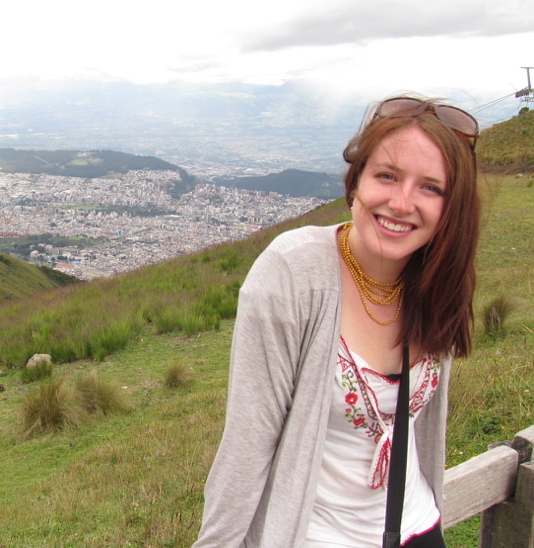Building community and instigating positive social change are the heart and soul of the work we do at the Ginsberg Center. In fact, it was the Center’s commitment to these two principles that initially prompted me to apply for a position at Ginsberg back in Winter 2018. As a current 4th year PhD candidate in the Linguistics Department, I study how foreign-accented speakers are perceived in the U.S. today, with an eye towards spreading awareness about linguistic diversity and language discrimination.
My job as a Graduate Academic Liaison (GAL) at the Ginsberg Center is to implement these principles in a variety of projects. In collaboration with my colleagues, I get to design and facilitate community engagement workshops for various U-M courses and student-led organizations around campus.
Working as a GAL at Ginsberg has been an exciting ride for me for several reasons. First, I have become part of a tight network of passionate people, all of whom share the common goal of advancing positive social change. Second, I’ve been able to learn from some of the best how to facilitate workshops (and facilitate them well!), which is a handy skill for someone like me who plans to become a university faculty member upon graduation. Finally, I’ve acquired a more sophisticated and a more realistic sense of what it means to lead successful community engagement projects.
At Ginsberg, we always like to come back to the fundamental idea that successful community-engaged projects start by identifying community-defined priorities. That is, ask not just what you want to do for the community, but also what the community members want for the community. This is a simple but powerful principle that I learned as a result of my work at Ginsberg, and it has influenced how I approach other aspects of my professional work.
For example, in 2017 I co-founded a community engagement initiative at U-M called LanguageMatters, the aim of which is to encourage linguistic diversity and discourage linguistic discrimination on our campus and in our classrooms. In the early phases of our organization, the members of the LanguageMatters Steering Committee defined our own priorities and objectives for the U-M campus community. However, as we began to launch our organization and had our first few open meetings, we realized that in order to most effectively address language discrimination at U-M, we needed to hear from U-M community members directly. In an attempt to put community-defined priorities first, we initiated a survey project to collect data from community members about what they saw as pressing language issues on/around campus. In this way, there exists an exciting, complementary overlap between what I’ve come to learn by working at Ginsberg and the nature of the other roles I hold within the University. I am grateful to be a part of the wonderful work that The Ginsberg Center does!

